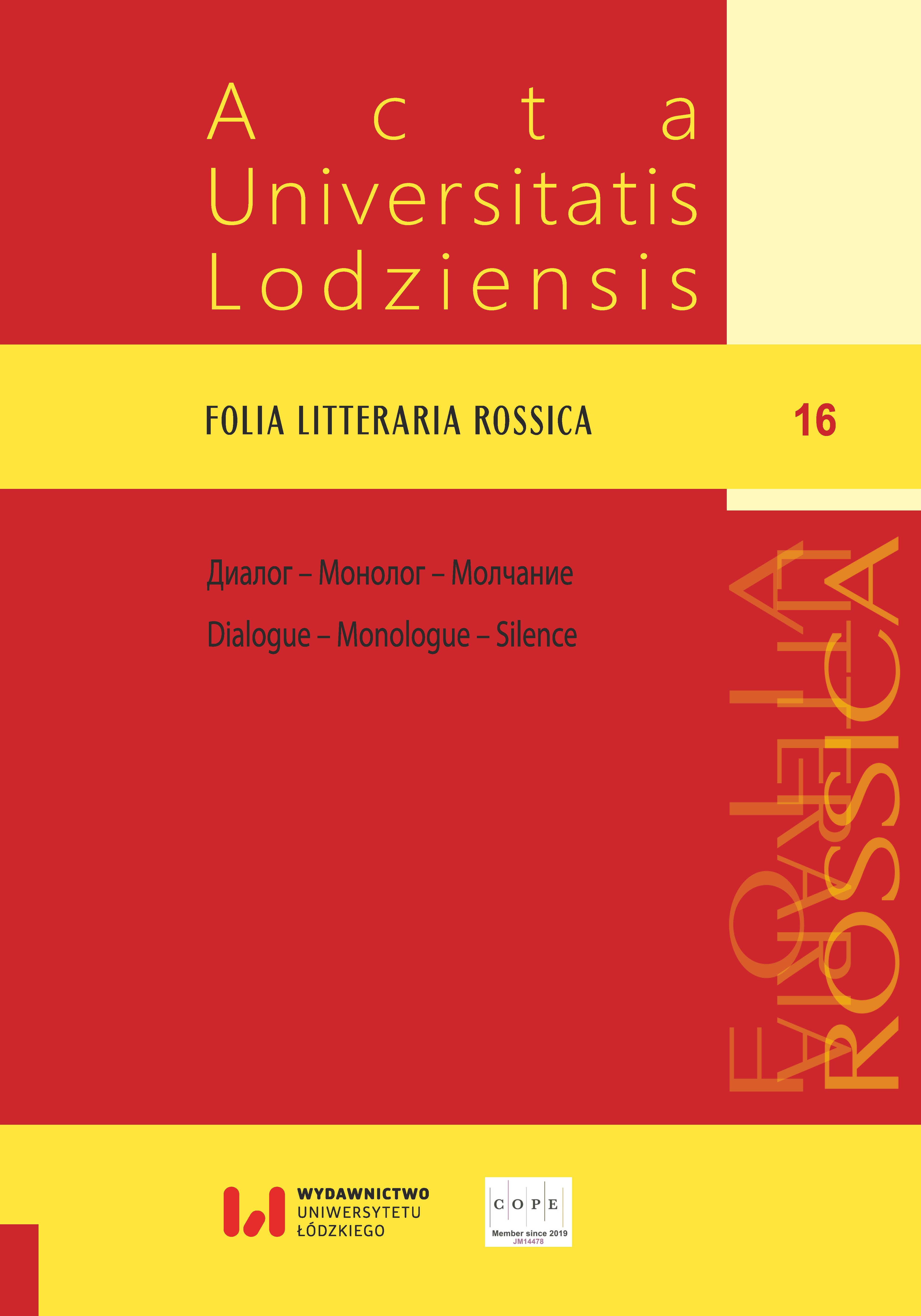Four Ways to Achieve Freedom. About the Heroes of Russian Literature
DOI:
https://doi.org/10.18778/1427-9681.16.02Keywords:
freedom, Russian literature, skete life, Fedor Karamazov’s mode of life, Ilya Oblomov’s mode of life and “secret” spiritual freedomAbstract
This article contains criticism of the neoliberal concept of positive freedom. The author offers his understanding of the ideal of freedom, which is based not on economic, but on social and psychological criteria. The Hegelian understanding of freedom as a conscious necessity, according to the author, is unacceptable for modern man. It is difficult not to agree with Dostoevsky’s opinion that it is not the choice of benefit and goodness, but the obligatory nature of this choice that deprives a person of that incomparable sense of freedom (Notes from the Underground). Not only the holy spirit, but also the human spirit, blows wherever it wants, and not only where it is “necessary” or prescribed to blow. It is also impossible not to take into account the possibility of the spontaneous launch of unpredictable mechanisms of nature and culture, which Yuri Lotman wrote about in Unpredictable Mechanisms of Culture (1993). The author of the article identifies four types of positive freedom, which are expressed in the images of some heroes of Russian literature. These include skete life, described in the writings of Nil Sorsky and other Russian hesychasts, Karamazovism, Oblomovism, and, finally, “secret” spiritual freedom. The author expresses sympathy for the latter concept of positive freedom, incompatible with both anarchic tyranny and “blessed” passivity.
Downloads
References
Bakhtin, Мikhail М. Problemy poetiki Dostoevskogo, izd. 4. Мoskva: Sovetskaya Rossiya, 1979.
Google Scholar
Dostoevskii, Fedor M. Bratya Karamazovy. In: Polnoe sobranie sochinenii: v 30 t. Vol. XIV. Leningrad: Nauka, 1976.
Google Scholar
Dostoevskii, Fedor M. Zapiski iz podpolya. In: Polnoe sobranie sochinenii: v 30 t. Vol. V. Leningrad: Nauka, 1973: 98–179.
Google Scholar
Dostoevskii, Fedor M. Zimnie zapiski o letnikh vpechatleniyakh. In: Polnoe sobranie sochinenii: v 30 t. Vol. V. Leningrad: Nauka, 1973: 46–98.
Google Scholar
Goncharov, Ivan A. Oblomov. Roman v chetyrekh chastyakh. Мoskva: Khudozhestvennaya literatura, 1973.
Google Scholar
Lotman, Yurii M. Nepredskazuemye mekhanizmy kultury. Tallinn: TLU Press, 2010.
Google Scholar
Mildon, Valerii I. Otkrylas bezdna. Obrazy mesta i vremeni v klassicheskoi russkoi drame. Moskva: “Artist. Rezhisser. Teatr”, 1992.
Google Scholar
Ostrovskii, Aleksandr N. Groza. Drama v pyati deistviyakh. In: Sochineniya: v 3 t. Moskva: Khodozhestvennaya literatura, 1987: 342–396.
Google Scholar
Pushkin, Aleksandr S. Pora, moi drug, pora!.. In: Polnoe sobranie sochinenii: v 10 t. Vol. III. Moskva– Leningrad: Izdatelstvo Akademii Nauk SSSR, 1949: 279.
Google Scholar
Shchukin, Vasilii G. “O dialoge i ego alternativakh. Variatsii na temu M. M. Bakhtina”. Voprosy filosofii. No. 7 (2006): 32–44.
Google Scholar
Sorskii, Nil. Ustav. In: Prepodobnye Nil Sorskii i Innokentii Komelskii. Sochineniya, ed. G. M. Prokhorov. St. Petersburg: Oleg Azheshko Edition, 2008: 95–201.
Google Scholar
Downloads
Published
How to Cite
Issue
Section
License

This work is licensed under a Creative Commons Attribution-NonCommercial-NoDerivatives 4.0 International License.












